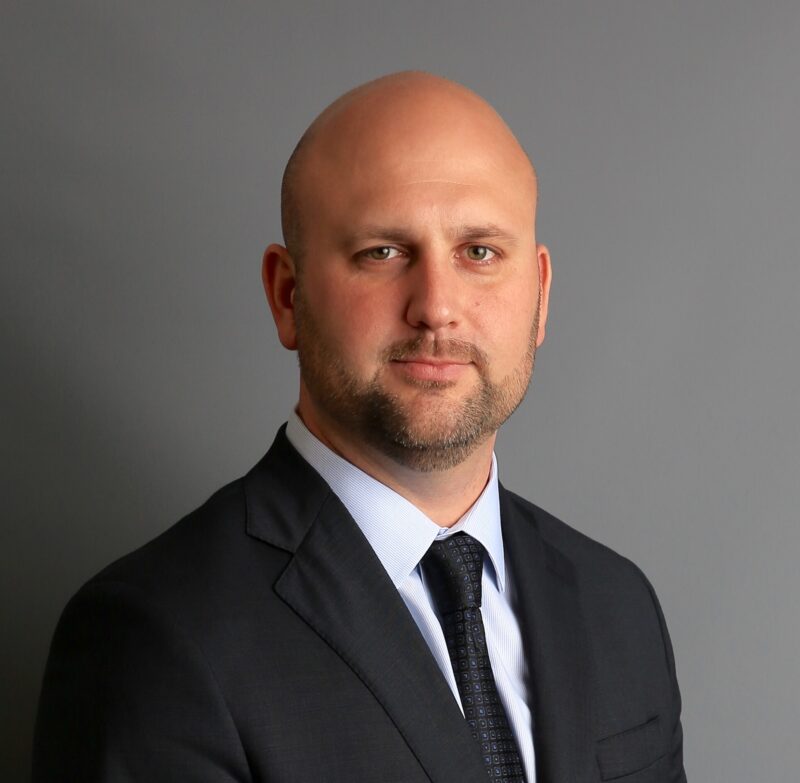
The finalists for WashingtonExec’s Pinnacle Awards were announced Oct. 13, and we’ll be highlighting some of them until the event takes place virtually Dec. 8.
Next is Artificial Intelligence Industry Executive of the Year (Public Company) finalist Steve Escaravage, who’s a senior vice president at Booz Allen Hamilton leading its analytics practice and artificial intelligence services business. Here, he talks success in his current role, focus areas going forward, turning points in his career and more.
What key achievements did you have in 2020/2021?
In May 2020, Booz Allen was selected as the lead solution integrator for a set of significant artificial intelligence programs including the 5-year, $800 million Department of Defense Joint Artificial Intelligence Center Joint Warfighter Task Order through the General Services Administration Federal Systems Integration and Management Center. The opportunity to support our government on these critical AI programs is an incredible source of pride and motivation.
Also in 2020, we implemented a corporate risk management and governance program for AI and machine learning technologies. Under this program, all projects utilizing ML and related technologies to achieve AI outcomes are reviewed and continuously monitored for alignment with Booz Allen’s corporate values and technical design, integration and operations standards.
The objectives of this program are to build trust and an evidence base as we expand our collective understanding of responsible AI. As one of the first Fortune 500 companies to implement such a program, I am incredibly thankful for the hard work and collaboration that allows us to pioneer AI-related accountability in our industry.
Finally, my team also secured multiple industry awards over the last few years, including NVIDIA’s Global Consulting Partner of the Year and Databricks’ Federal Partner of the Year. It is always a point of pride to see our team recognized for passion and hard work.
What has made you successful in your current role?
My success is a direct function of the ingenuity of my incredible team. I view it as my responsibility to marshal the right resources to each project, and then to create pathways for our team members to share ideas and practice their craft. And perhaps most importantly, to constantly augment the team with new thinking, expertise and energy. I find team building to be one of the most enjoyable aspects of my role, especially as the demands of AI initiatives reach into increasingly diverse pools of expertise.
What was a turning point or inflection point in your career?
Like so many technical leaders, for years, I attempted to be directly involved in most (OK, maybe all) engineering decisions across my business. I had become a bottleneck for growth and innovation as I worked to understand each challenge and solution at an atomic level.
Thankfully, in 2014, I had terrific mentors who helped me see my engagement approach as a failure mode for my business, which triggered a renewed effort to optimize my contribution.
Within a year, this shift created enough time to allow my involvement in a few priority initiatives that would ultimately serve as the bedrock of our portfolio for years to come.
What are your primary focus areas going forward, and why are those so important to the future of the nation?
The National Security Commission on AI clearly outlined the existential threat faced by our nation if we cede technological superiority in AI to world actors that do not share our values. The commission also outlined the incredible opportunities AI presents to improve our civil institutions, economy and way of life. I wholeheartedly agree with the commission’s findings and am focused on leading Booz Allen’s response to the commission’s calls to action.
Here, industry plays an important role. We are uniquely positioned to identify, source and deliver solutions to barriers limiting adoption of AI technologies across the federal enterprise. We can help connect government organizations facing similar opportunities and challenges to share investments and best practices.
And critically, we can collaborate across industry, academia and civilian organizations to build historic private-public partnerships and a leading AI workforce for the nation. This is my focus, and I hope the focus of many others reading this interview.
What’s your best career advice for those who want to follow in your footsteps?
Two recommendations come to mind. First, early in your career, prioritize exposure to different industries, markets and problems. I had the opportunity to lead and support engagements with many public and private sector organizations, both domestically and internationally, across a broad range of industries including defense, financial services, oil and gas, and life sciences, to name a few. I lean on this experience today as similar challenges, condition and cultures manifest across our client’s missions.
Second, for senior technical leaders, I highly recommend carving out time for pet projects that keep you engaged in the activities and tradecraft of your team. On multiple occasions, my passion projects led me down a path to significant shifts in my vision and strategy, while also strengthening my connections and gratitude for our team.

